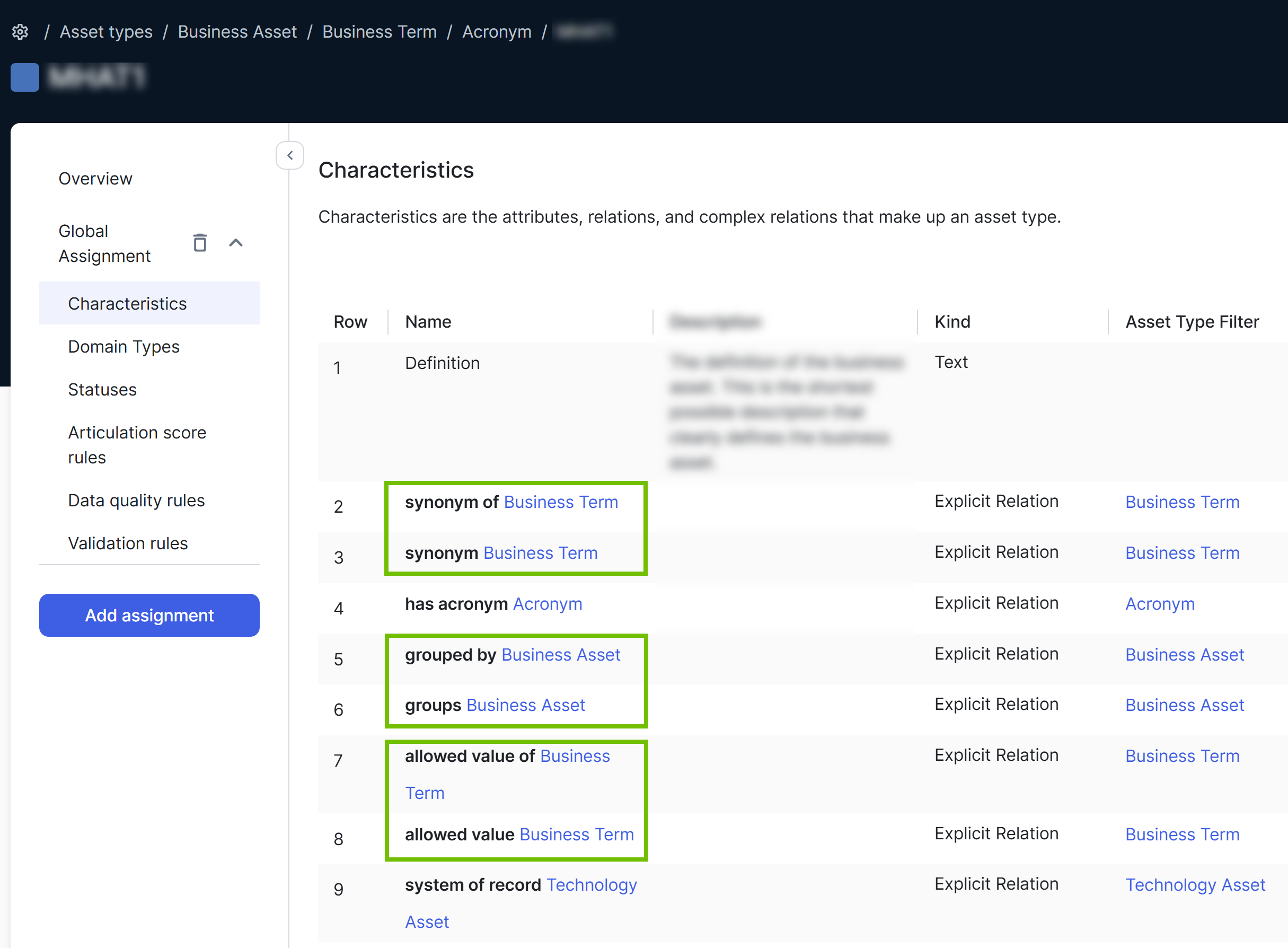Every asset type has an assignment that determines the characteristic types and statuses available for assets of that type. The assignment also determines the domain types that the domains of those assets can have, thus ensuring consistency and adherence to organizational policies.
An assignment is a configuration object that links a collection of governance elements to a specific asset type and optionally to its child asset types. These elements include:
- Characteristic types: Determines the attribute types, relation types, and complex relation types that you can assign to the assets of a specific asset type.
- Domain types: Defines the domain types to which the assets can belong.
- Statuses: Controls the valid statuses for the assets.
- Articulation score rules: Specifies the properties of articulation scores that contribute to the completeness of the assets.
- Data quality rules: Defines the data quality rules that contribute to the quality of the assets.
- Validation rules: Defines the validation rules that determine if the assets are valid or not.
Note Certain assignments have system-managed attribute types, relation types, and statuses that can't be removed because they are necessary for the proper functioning of Collibra Platform. For example, in the global assignment of the Column asset type, you can't remove the relation type that links it to a table.
Global and scoped assignments
You can apply an assignment globally by creating a global assignment or to a scope by creating a scoped assignment.
A global assignment applies to all assets that are not in a scope. A scoped assignment applies only to assets located in a domain or community that belongs to the scope. An asset type can have only one global assignment but may have many scoped assignments.
Before adding a scoped assignment, an asset type must have a global assignment. You can add a global assignment using Add global assignment on the asset type page.
Note In the Characteristics table of an assignment, out-of-the-box relation types where the same asset type is both the head and the tail of the relation are listed in separate lines. 
Inheritance
If an asset type doesn't have an assignment, it inherits all assignments from its parent asset type. If, however, an asset type has at least one assignment, it doesn't inherit any assignments from its parent asset type.